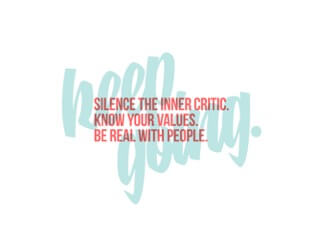I believe a strong organization is made up of great teams and great solutions that can create the perfect intersection of collaboration and growth. I am always on a search to understand what makes people tick, and this is especially pertinent in the work I do managing a team. I find this curiosity often carries over into my work-work of marketing to help us empathize, understand and connect with our customers better.
Company Culture is a Representation of Your Employees’ Collective Stories
We talk about “culture” as a united and ever-changing element of this thing we call work. However, I do like to pause and think about the individual experience and story each person brings with them into an organization. Each of us has a history that got us to where we are; it’s likely a part of that history was having a great mentor, friend, boss or even someone that taught us some hard lessons along the way.
Within those influences, we probably got some advice about how to navigate our career that we will never forget. I’ve found that nearly everyone has an example of some time someone said something that stuck with them. Perhaps it was grounding. Perhaps it was comforting. Perhaps it was a wake-up call. Whatever the advice is, I think it’s fascinating to learn what has helped each person around us keep going and make sense of this passion we have in our careers.
What’s the Best Career Advice You Have Ever Gotten?
Over the last few weeks, my curiosity got the best of me. I wanted to know what those on my team, others within InterWorks and some folks I admire professionally from my social network had to say about the best career advice they have ever gotten. I decided to anonymize these answers. The sources of this advice ranged from mentors, co-workers, partners, parents, professors, TED talks, books/authors—again, all fascinating to me as I learn more.
Here are some of the answers that people were kind enough to share with me:
- “Learn to do your boss’s job, then learn how to do the jobs of your teammates.”
- “Just because you can do something doesn’t mean you should.”
- “Work hard and be nice to people.”
- “Control the controllable! If anything is outside of my control, then stop worrying and focusing on it. Control what you can to have impact.”
- “I definitely want to help when I can, but allowing others to own things can help me focus on what’s important for my role and let others have the ownership/confidence in theirs.”
- “Come to your boss with solutions, NOT problems.”
- “You should trust your team members to do what they do best and not get in the way. Your value as a manager doesn’t come from handholding them in the thick of things or breathing down their necks to ensure everything is going to perfection. Rather, your value as a manager comes from your view ‘from the balcony.’ By seeing what each person is doing from that vantage point, you can direct people in the right direction as needed without being a roadblock to their work. When a manager does this kind of traffic direction effectively, projects go smoothly and effectively.”
- “If you don’t like what you’re doing, change it, but you only go around once.”
- “You can never regain ground you’ve lost with people.”
- “Know what your priorities are and don’t place your identity in work. I hope to never be someone who is known for his work more than who he is.”
- “There is no such thing as a creative block. If you hit a wall, turn and go a different direction. I like the optimistic tone here, and it continues to remind me that when I get stuck on something, maybe instead of forcing something in one direction and pushing through a creative block, there is a great alternative.”
- “We’re not brain surgeons; no one will die if we don’t make a decision on this right now.”
- “Whatever kind of job you have—entry level or president—do that job like you own the business. Be proud no matter what you do. And if you work for a business, always remember that you represent that company with your words and actions.”
- “Be prepared for the harsh realities and reactions you will get when you are a woman and you choose to be assertive.”
- “Find the things that you do well and that you like doing; then go make yourself indispensable.”
- “It’s the ability to pull it all together and present it very well that’s always the most important part.”
- “Before meeting with a client or potential client for the first time, look at ESPN or other sports websites. Absorb some headlines of the day. Be ready to throw some out as ice breakers … people love to talk about their team.”
- “Don’t assume anything is out of reach. Regardless of industry, role, or expertise, if you find yourself headed in that direction, don’t stop pursuing it. If fact, you should run toward it because 1) growth is uncomfortable and 2) you never know what your passion could be if you don’t try.”
- “The value of saying no/quitting. Ask yourself: If I hate this, then why do I keep going back to it?”
- “If you’re looking for money, design isn’t the answer. You shouldn’t design to become rich.”
- “It’s just design; nobody’s going to die. Have fun with it.”
- “Fake it ‘til you become it.”
- “The best career advice I ever got was in middle school as a library aid. On my first day, I asked what I should be doing after I completed my list of tasks for the day. The librarian said, ‘Take some initiative. If you don’t know what that means, look it up. This is your library, too.’ I’ve sort of hung onto that advice ever since, and when I’m not sure what I should be doing (personally or professionally) I think back: take some initiative.”
We talk about “culture” as a united and ever-changing element of this thing we call work. However, I do like to pause and think about the individual experience and story that each person brings with them into an organization.
Reflecting on these responses, I definitely get a good dose of inspiration to think about those people in my professional and personal life who have been compassionate enough to give me a chance, empower me and, further, share their wisdom with me, which is likely a collective form of information they got from someone that helped them, too. Career advice seems like the equivalent of “pay it forward” in the professional sense.
Why Does This Matter?
You might be asking, What does this have to do with technology, data or IT? My hope is that no matter what your career, no matter your industry or role, you find it within yourself to consider what values you hold close to you and what has inspired you as an individual. There is a lot to be said about the collective value of an organization and the accomplishments a team can have. However, don’t be afraid to pause and ask yourself these important questions about what has helped shape you as a professional.
To me, work is such a fulfilling part of my life, but that doesn’t mean it’s always easy. When things get challenging, I have the advice that stuck with me along the way to help me keep going. It’s part of my story. And my story brings a unique value to collaborations—just like the people around me can but only if I take the time to ask them. I have such a deep gratitude for this diversity in perspectives, and I’m going to keep working to understand how it can make us all stronger.

Above: A simple design I created while collecting feedback and reflecting.

